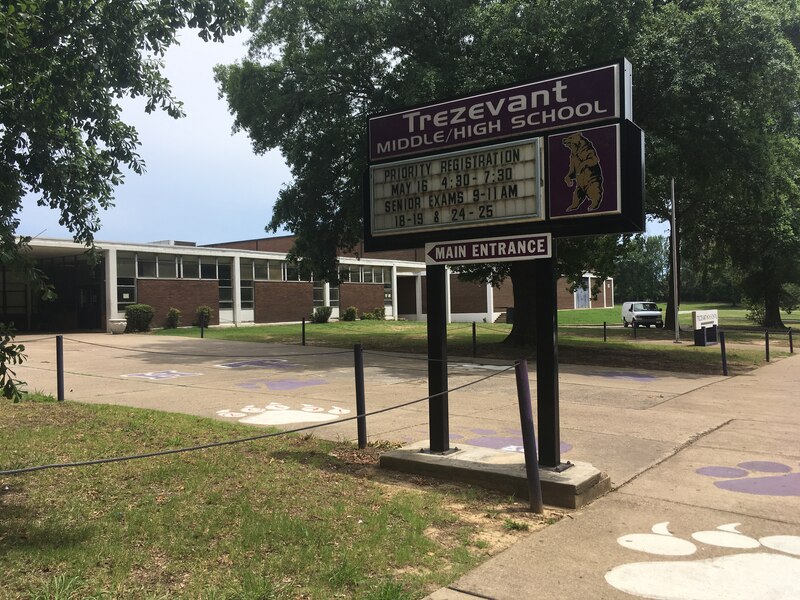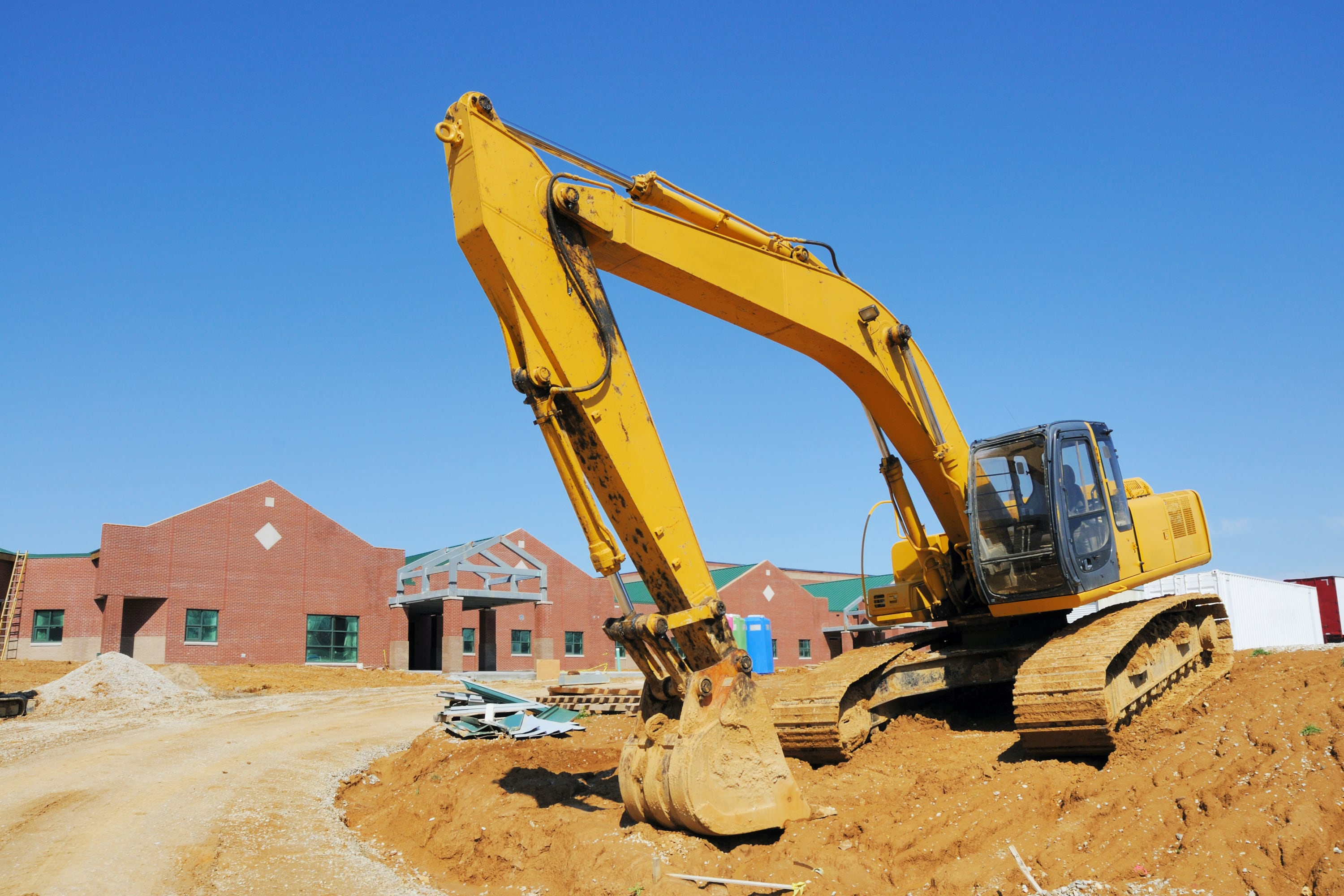Tennessee needs to invest more than $9 billion in its K-12 education infrastructure over five years, an increase of nearly 9% from an assessment done a year earlier, a new state report says.
Of that amount, about $5.4 billion is needed for renovations and technology improvements, while nearly $3.6 billion is needed to build additions and new schools, according to the Tennessee Advisory Commission on Intergovernmental Relations.
The report, approved Thursday by the commission, comes as local and state officials grapple with how to cover the soaring costs of school construction, which have doubled in the last decade due to rising material and labor costs.
Meanwhile, years of research shows that fixing school buildings can improve student learning, health, and behavior. One study in Tennessee shows a direct connection between student achievement and the condition of school buildings. Another study from New York found that poor building conditions can lead to higher rates of chronic absenteeism.
In Tennessee, cities and counties pay for most of their school facility needs with property and sales tax revenues. But some state lawmakers are looking for ways to ease that burden.
Last year, one legislative proposal would have directed tax revenues from Tennessee’s new sports betting industry toward local school facility costs. But the measure fizzled in committee as legislators opted to keep most of that money — at least for now — for higher education scholarships, such as the state’s popular HOPE and Tennessee Promise programs.
This year, new legislation to eliminate state mandates on class sizes — if approved — could slow the need for new schools and additions.
But many local officials would prefer a new state revenue stream to help them repair or replace aging schools.
Miska Clay Bibbs, a former school board member in Memphis who was elected last year to the Shelby County Commission, said a broader conversation is overdue. At least 33 Memphis schools were built before 1950.
“Not only is Memphis-Shelby County Schools the state’s largest school district, but most of our school buildings are some of the oldest,” said Clay Bibbs. “These buildings don’t mirror the greatness of the students, teachers and families that these schools represent.
“It makes for a difficult learning environment,” she said.

Tennessee needs 70 more schools
The inventory compiled by the state commission, which reports directly to the legislature, serves as a yearly reminder of Tennessee’s billions of dollars in unmet capital construction needs — from schoolhouses and roads to bridges and water lines. The report has been compiled every year since 1998 and has become an important tool to identify critical needs and set state priorities in the budget-making process.
The latest needs list tallied $63 billion in all, with education ranking second again, behind transportation and just ahead of health and safety infrastructure needs such as clean water, law enforcement, fire protection, and public health.
In the education category, college campuses saw a decrease in their infrastructure needs after several years of new investments, while K-12 public schools saw their needs increase.
To keep on track, local officials reported needing to build 70 more schools across Tennessee, at an average estimated cost of $42 million each. That amount can vary widely, however, depending on the school’s size, location, and purpose. For instance, Sullivan County’s new high school cost $75 million, while a new K-8 school in Lincoln County came in at $17 million.
Rep. David Hawk, a Republican from Greeneville, said his local school district is staring at a $50 million price tag to build a new middle school in Upper East Tennessee. He added that something has got to give.
“Brick and mortar for education is one of the largest costs to local governments, which go into substantial debt to build schools to meet state mandates,” said Hawk.
For much of his 20-year legislative career, Hawk has looked for a way to direct state funds to build schools, and he sponsored last year’s failed bill to use sports betting revenue for that purpose. He doesn’t plan to file a similar bill this year but says he wants to continue to “push the envelope.”
“We can and should do more,” Hawk said.
Sen. Jon Lundberg says infrastructure challenges aren’t the impetus for his bill this year to eliminate Tennessee’s maximum class size requirements of 25 students in kindergarten through third grades, 30 students in grades 4-6, and 35 students in grades 7-12.
“My goal is not to create larger class sizes; it’s just to give localities more discretion when there are extenuating circumstances, such as when a classroom has teacher aides,” Lundberg said. “The state would still put out best practices on optimum class sizes.”
But the Bristol Republican, who chairs the Senate Education Committee, acknowledged that such a change could also have the unintended effect of lessening pressure on local governments to build new schools or additions as their student populations grow.
“It’s possible,” he said. “My expectation is that locally elected leaders will do what’s right.”
Memphis has a long list of building needs
Last August, the collapse of a school library ceiling at one school — when school was in session — underscored the importance of addressing longstanding capital needs in Memphis-Shelby County Schools.
No students were in the library at the time at Cummings K-8 Optional School, but the school librarian and two other staff members were injured. All students will finish out this school year at a neighboring school pending repairs and the outcome of a structural review.
According to the state’s latest breakdown of local needs, Memphis-Shelby County Schools needs to address school infrastructure projects totaling more than $464 million, at a cost of $3,450 per student, by mid-2026.
But funding is a challenge. Last summer, Shelby County commissioners granted only half of the Memphis district’s $55 million request for capital improvements, putting several major projects on hold, including a replacement building for Trezevant High School in the city’s Frayser community.
Interim Superintendent Toni Williams is compiling a new capital improvement plan to bring before the commission this year. But Clay Bibbs, who chairs the Shelby County Commission’s education committee, says relief from the state could expedite improvements.
“Imagine if we had more dollars to take on more projects. Change could happen faster,” she said.
Tennessee received over $4 billion from three federal COVID relief packages, but Gov. Bill Lee and GOP leaders encouraged school districts to use at least half of their portions on programs and resources to help their students catch up academically from the pandemic.
Districts spent much of the early funds on technology upgrades like digital tablets. Some used part of their later funds to upgrade ventilation, heating, and air conditioning systems in school buildings. However, much of that spending was not captured in the latest state report, which gives a snapshot of infrastructure needs as of July 2021.
“We might see a drop in some of those areas next year,” said Tyler Carpenter, the commission’s research manager and the report’s co-author.
The governor has said he’ll prioritize Tennessee’s transportation infrastructure backlog this year. He is expected to unveil his proposed state budget for the 2023-24 fiscal year on Feb. 6.
Marta Aldrich is a senior correspondent and covers the statehouse for Chalkbeat Tennessee. Contact her at maldrich@chalkbeat.org.







